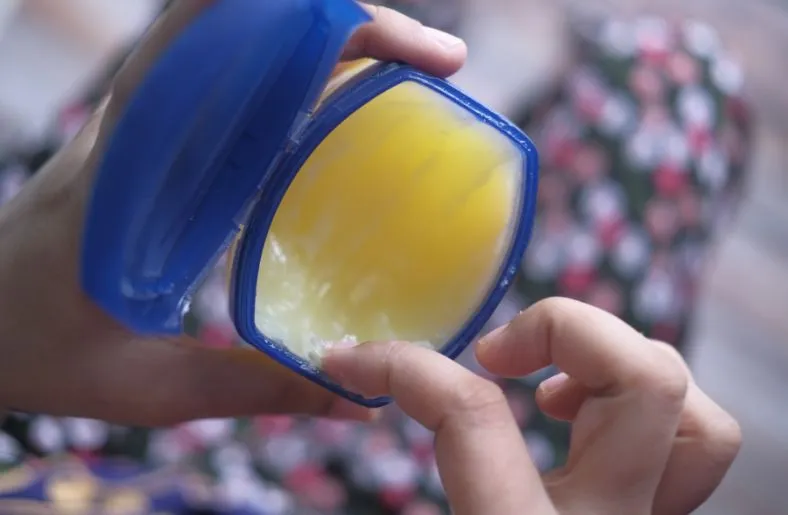When it comes to lubrication, grease has long been the go-to option for many industries and households. However, there has been a growing interest in Vaseline as a potential substitute for traditional grease.
In this article, we will delve into the properties of Vaseline and compare its pros and cons to traditional grease, ultimately answering the question: does Vaseline work as grease substitute?
Table of Contents
Properties of Vaseline
Vaseline, also known as petroleum jelly, is a semi-solid mixture derived from petroleum. It is primarily composed of mineral oils and waxes, which give it its characteristic smooth texture. Vaseline is widely known for its moisturizing properties and is often used to soothe dry skin. However, its uses extend beyond skincare and have led to its consideration as a potential grease substitute.
One of the key properties of Vaseline is its high viscosity. This means that it is thick and sticky, allowing it to adhere to surfaces and provide effective lubrication. Additionally, Vaseline has a high melting point, which enables it to remain stable under high temperatures. These properties make Vaseline a promising option for various applications where grease is traditionally used.
The Role of Grease in Various Applications
Grease plays a crucial role in many industries and applications. It is commonly used to lubricate moving parts, reduce friction, and protect against wear and tear. In automotive applications, grease is used in wheel bearings, chassis components, and other mechanical parts. Grease is essential for the smooth operation of machinery and equipment in the manufacturing industry.
Grease is also used in household applications, such as lubricating door hinges and locks. Its ability to adhere to surfaces and provide long-lasting lubrication makes it a reliable choice. However, the question remains: can Vaseline effectively fulfill these roles and replace traditional grease?
Does Vaseline Work as Grease Substitute?
Pros and Cons of Using Vaseline versus Grease
Before determining whether Vaseline can truly work as a grease substitute, it is important to weigh its pros and cons against those of traditional grease.
Pros of Using Vaseline:
- Cost-effective: Vaseline is generally more affordable than traditional grease, making it an attractive option for cost-conscious individuals and businesses.
- Widely available: Vaseline can be easily found in pharmacies, supermarkets, and online stores, making it easily accessible for anyone in need of a lubricant.
- Versatility: Vaseline’s high viscosity and stability under high temperatures make it suitable for a wide range of applications, from automotive to household use.
Cons of Using Vaseline:
- Limited temperature range: While Vaseline can withstand moderate temperatures, it may not be suitable for applications that require lubrication under extreme heat or cold conditions.
- Lack of additives: Traditional greases often contain additives that enhance their lubricating properties and protect against corrosion. Vaseline, on the other hand, lacks these additives and may not provide the same level of protection.
- Cleanliness concerns: Vaseline is known to attract dust and dirt, which can compromise its lubricating effectiveness over time. Regular cleaning and reapplication may be necessary in certain applications.
Related Guide: What to Put on Battery Terminals to Prevent Corrosion: The Ultimate Guide? (2024)
Final Verdict: Does Vaseline Work as Grease Substitute?
After careful consideration of its properties and comparison to traditional grease, the answer to whether Vaseline truly works as a grease substitute is both yes and no. While Vaseline can be a suitable alternative in certain applications, it may not be a direct replacement for traditional grease in all cases.
For low-temperature and moderate-temperature applications where cost-effectiveness and accessibility are prioritized, Vaseline can be a viable substitute. Its high viscosity and stability make it effective in reducing friction and providing lubrication. However, in high-temperature or extreme conditions, traditional grease with its additives and specialized formulations may still be the optimal choice.
Ultimately, the decision to use Vaseline as a grease substitute should be based on the specific requirements of the application and the desired level of lubrication and protection.
Conclusion
Vaseline’s potential as a grease substitute has sparked interest among individuals and industries seeking cost-effective and readily available lubrication options. While it offers advantages such as affordability and versatility, it may not be suitable for all applications due to its limited temperature range and lack of additives.
By understanding the properties of Vaseline and comparing its pros and cons to those of traditional grease, individuals, and businesses can make informed decisions on whether to embrace Vaseline as a grease substitute.

